In August 2021, the Taliban regained control of Afghanistan, causing great chaos around the world. The Taliban is a terrorist organization founded in southern Afghanistan in 1994 to establish their ideal Islamic state. They ruled Afghanistan from 1996 to 2001 and oppressed the Afghan people severely. The Taliban lost power after the U.S.-led invasion of Afghanistan following the September 11 attacks by Al Qaeda[1] in 2001. Although Afghanistan has now regained its freedom since, the Taliban reoccupied the region recently. Let's learn more about this issue and its influence on the international community.
Background of Taliban Takeover: Withdrawal of the U.S. & NATO Army
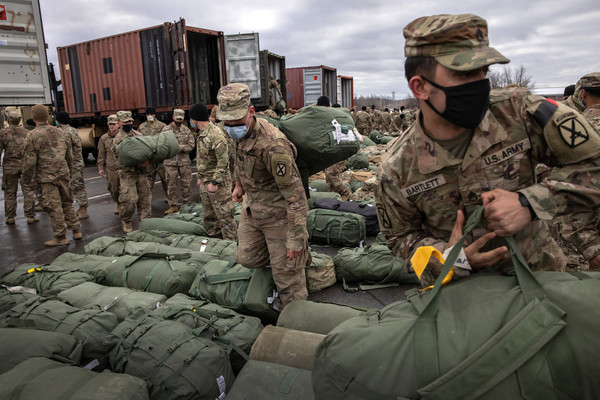
On April 14th, 2020, President Joe Biden declared that he would not shift the responsibility of commanding the U.S. troops in Afghanistan to the next president. The U.S. Department of Defense announced it had withdrawn more than 90% of its troops from Afghanistan on July 6th, 2021. The North Atlantic Treaty Organization (NATO) has also begun withdrawing their forces from Afghanistan. NATO forces have been stationed in Afghanistan since 2001 and have been in charge of non-combat missions such as training local troops since 2015. However, about 7,000 troops were to be withdrawn, following the decision of the United States. As a consequence, the Taliban used the withdrawal of U.S. and NATO forces from Afghanistan as an opportunity to strengthen their military capabilities. On June 3rd, 2021, Bloomberg reported, “Taliban militants are gathering across Afghanistan in preparation for a possible takeover of the country by force as U.S. and NATO troops exit over the next few months, the United Nations has warned.”, citing the United Nations Security Council Report released the day before. The UN report explained that the Taliban mobilized troops around key cities in Afghanistan and is intensifying attacks across the country. According to CNN's June 3rd report, Asfandyar Mir, a South Asia security analyst at Stanford University, noted that the Taliban had already taken an aggressive stance in Afghanistan. She further said, “Taliban is starting to put major pressure in provinces adjacent to Kabul -- including, worryingly, in neighboring Laghman, which saw substantial Afghan security forces defections to the Taliban”. As such, there were many concerns about Afghanistan, where the military had withdrawn.
Progress of Takeover
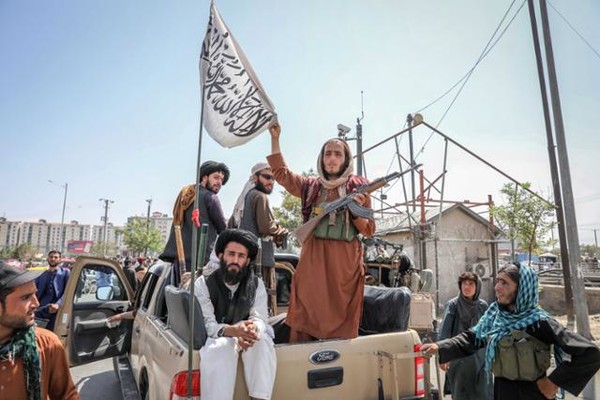
The Taliban captured Zaranj in Afghanistan on August 6th, 2021, Sheberghan on 7th, and other two major cities in the northern region on 8th. The battle in Zaranj showed the limits of the government's military by surrendering to the Taliban after only three hours of fighting. Due to the lack of troops in Zaranj, they requested additional personnel from the central government but received none. In other words, it was difficult to defend against the Taliban forces in the absence of foreign occupation forces. Two days later, the number of occupied areas increased to nine. On August 15th, the Taliban reached the gateway to the capital, Kabul, and demanded the government's surrender. As a result, the Afghanistan government waved the white flag. Afghanistan Minister of Interior General Abdul Satar Mirzakwal started discussions with the Taliban on the transfer of government and authority. It happened just an hour after the Taliban entered Kabul. Afghan President Ashraf Ghani fled to Uzbekistan right after the Taliban captured the capital. The next day, August 16th, the Taliban took control of the presidential palace and declared victory with the Taliban flag. The Taliban urged the public to maintain composure and emphasized that they would implement an open policy surprising many. However, two days later, on the 18th, the Taliban changed their stance. They declared that Afghanistan is not a democratic country, and they would follow the Islamic 'Sharia' law. It was the basis for most of the oppressive policies during the previous Taliban rule (1996-2001). Taliban official Waheedullah Hashimi said in an interview with Reuters on that day, “People in Afghanistan, 99.99% are Muslims and they believe in Islam. When you believe in laws, definitely you should apply that law.” On August 19th, Afghanistan's Independence Day, hundreds of citizens in major cities including the capital Kabul lifted Afghan flags chanting “God bless Afghanistan”, “Long live the flag of Afghanistan” and took part in anti-Taliban protests. After, the Taliban immediately imposed a night curfew in Kabul.
Chaos in Afghanistan
Victims and Casualty
The Taliban repression has resulted in civilian casualties. According to the UN, 783 civilians were killed in May-June after the U.S. military announced their withdrawal, and more than 1,000 people died in July-August. On August 10th, the United Nations International Organization for Migration (IOM) said Taliban attacks displaced more than 5 million Afghans and 359,000 refugees. Before Afghanistan's surrender, thousands of people flocked to Kabul since the government forces were protecting the capital. However, on August 13th, the BBC reported that 72,000 children were living in refugee camps, citing data from Save the Children (an international NGO). Furthermore, according to a report of Reuters on August 18th, the Taliban killed at least 3 people and injured 12 during peaceful protests.
Women at Risk
Afghan women are most threatened by the Taliban’s expansion. During the previous rule (1996-2001), the Taliban banned Afghan women from receiving more than secondary education and deprived them of the right to work. They did not even allow cultural activities such as watching TV or listening to music. When leaving the house, all women must be accompanied by a man and the burqa, which covers the entire body, was the only outerwear allowed for them. The Taliban religious police committed harsh treatment such as whipping women on the street because they did not wear their burqas properly. Afghan women's freedom disappeared the moment the U.S. troops started to withdraw. On August 17th, two days after Afghanistan's surrender, the New York Times reported that women in burqas had already been seen on the streets of Afghanistan. According to Time, Zabihullah Mujahid, the Taliban’s spokesman promised to honor women’s rights within the norms of Islamic law on the same day. However, not even a day after, Fox News reported that an Afghan woman was shot and killed by the Taliban for being on the street without a burqa, arousing doubt toward the promise. Women with higher education are also hiding their degrees due to the Taliban's hatred of educated women. On August 17th, the Taliban imposed an indefinite suspension of female employees including Khadija Amin, a famous anchor of Afghan national broadcast. The persecution of women's human rights was predictable enough. In May, the Taliban bombed three girls' schools in Kabul, killing hundreds. Also in June, the Taliban declared a compulsory regulation requiring all girls over 15 and women without husbands under 40 to marry Taliban soldiers, after occupying northern Afghanistan.
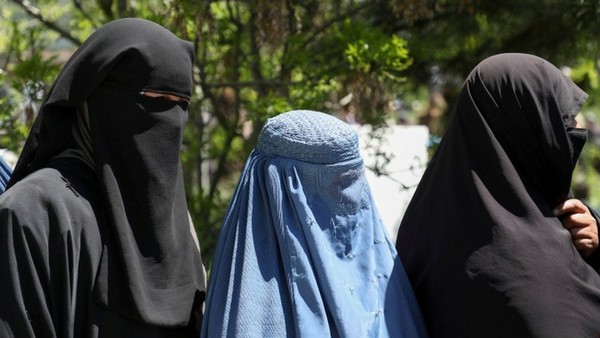
What Is Happening in the International Community?
Accepting Refugees
Pakistan is the most affected, having seen an influx of Afghan refugees since it is a neighboring country. According to the Wall Street Journal (WSJ) on August 15th, 2021, there were already more than 3 million Afghan refugees living in Pakistan. Pakistan's national debt accounts for 90% of its GDP, and as it is already receiving bailouts from the IMF, the additional influx is a significant burden. On August 21st BBC reported that Pakistan closed its borders, covering 90% of the borders with barbed wire. In addition, the government conducted intensive identification procedures at checkpoints in major cities connected to the Afghan border. Turkey is also wary of Afghan refugees from Iran heading to Europe via Turkey. On August 18th, the Turkish government announced that it sent troops to the border with Iran, building a 241 km barrier and about 200 watchtowers. European countries are showing each different response. The European Union (EU) is very focused on the Afghan refugee issue and is planning to support Iran and Pakistan. The German government is also providing financial and logistical support to neighboring countries of Afghanistan. The British government is planning to help about 20,000 Afghans settle in the. Austria, on the other hand, said it will not accept Afghan refugees. According to UN statistics of 2020, Austria already has 40,000 Afghan refugees, which is the second largest number in Europe after Germany. Hence, Austrian Interior Minister Karl Nehammer denied the need to accept refugees saying, “Those who need protection must receive it as close as possible to their country of origin.”
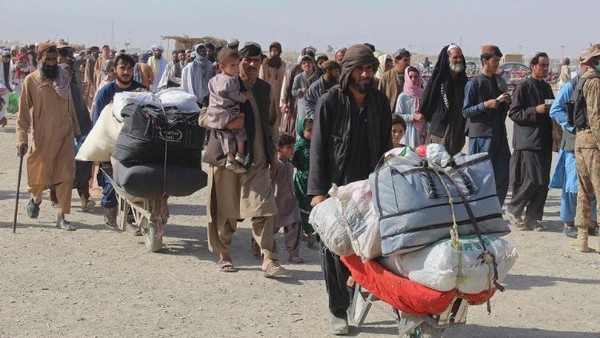
Response to the Taliban
According to a Reuters on August 18th, The International Monetary Fund (IMF) said it had stopped funding Afghanistan, including $440 million in new funding. The reason is the lack of transparency in the Afghan government ruled by the Taliban. Recently, the United States, France, and other allies seek cooperation and negotiation with the Taliban regarding the evacuation of civilians from Afghanistan. However, on August 29th, French President Emmanuel Macron emphasized "Discussions with the Taliban do not mean France will officially recognize the Taliban government."
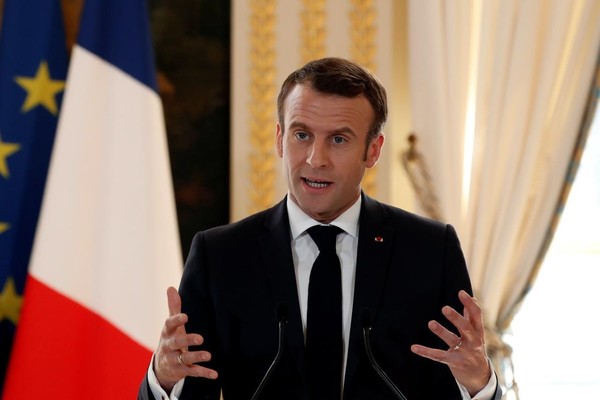
On the other hand, China, insisting on embracing the Taliban, said on August 25th that it is communicating with the Taliban smoothly. Wang Wenbin, China's Foreign Ministry spokesperson, said “China has maintained smooth and effective communication and consultation with the Afghan Taliban and Kabul is an important platform and channel for the two sides to discuss affairs of common concern”. It was the response after the meeting between a Taliban delegation and the Chinese ambassador to Afghanistan on August 24th. Meanwhile, on August 29th, 100 countries including South Korea, Australia, Germany, France, and Saudi Arabia, confirmed through a joint statement that the Taliban will allow authorized Americans and Afghans to leave the country after August 31st. This means the Taliban will guarantee evacuation of the U.S. and Afghan civilians even after the final withdrawal of the U.S. army. China, Russia, and Iran did not participate in the statement.
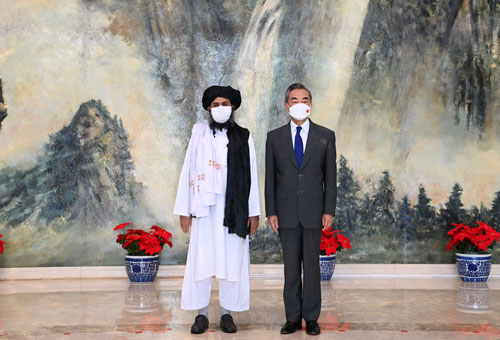
Afghans are suffering from extreme fear as the Taliban regained power. In the past, the Taliban abused Islamic doctrine in politics and violated human rights. Currently, thousands of refugees are crossing borders and heading to other countries to protect themselves. The world is paying attention to the future of the Taliban and Afghanistan more than ever. Every change will greatly affect international society. Therefore, it is necessary for each one of us to pay attention to this issue constantly.
[1] A radical Sunni Muslim organization dedicated to the elimination of a Western presence in Arab countries and militantly opposed to Western foreign policy. (https://bit.ly/38wDoRB)

